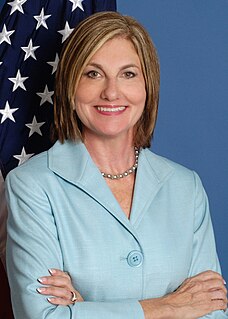
The National Credit Union Administration (NCUA) is one of two agencies that provide deposit insurance to depositors in U.S. depository institutions, the other being the Federal Deposit Insurance Corporation, which insures commercial banks and savings institutions. The NCUA is an independent federal agency created by the United States Congress to regulate, charter, and supervise federal credit unions. With the backing of the full faith and credit of the U.S. government, NCUA operates and manages the National Credit Union Share Insurance Fund, insuring the deposits of more than 111 million account holders in all federal credit unions and the overwhelming majority of state-chartered credit unions. As of September 2016, there were 5,573 federally insured credit unions, with assets totaling more than $1.38 trillion, and net loans of $957.3 billion. The NCUA exclusively insures credit unions, whereas commercial banks and savings institutions are insured by the Federal Deposit Insurance Corporation.
A credit union league or credit union central is cooperative federation for credit unions.
A corporate credit union, also known as a central credit union, provides services to natural person (consumer) credit unions. In the credit union industry, they are sometimes referred to as "the credit union’s credit union". In the United States, corporate credit unions may either be chartered by the National Credit Union Administration (NCUA), or under state authority if permitted under that state's financial services laws.
U.S. Central Federal Credit Union was the largest corporate credit union in the United States. Unlike consumer driven credit unions, U.S. Central provided its services only to other corporate credit unions, in effect acting as the "corporate credit union's credit union". The organization was founded in 1974. The organization had to be shut down in 2009 as a result of the 2008 financial crisis. Eventually, Credit Suisse was forced to pay $400 million to resolve claims that it sold faulty mortgage-backed securities to U.S. Central Federal Credit Union.

Security Service Federal Credit Union (SSFCU) is a federally insured, federally chartered, $8 billion, natural person credit union with more than 925,000 members, operating from 70 service centers in the U.S. states of Texas, Colorado, and Utah. SSFCU is the largest credit union in San Antonio, Texas, 3rd largest in Colorado, and the 8th largest in the United States, with access to more than 5,000 credit union locations nationwide through CU Service Centers shared branching.
The Central Liquidity Facility (CLF) is a mixed-ownership United States (U.S.) government corporation created to improve the general financial stability of credit unions by serving as a liquidity lender to credit unions experiencing unusual or unexpected liquidity shortfalls. Member credit unions own the CLF which exists within the National Credit Union Administration (NCUA). The President of the CLF manages the facility under the oversight of the NCUA Board.
The NCUA Corporate Stabilization Program was created on January 28, 2009, in response to investment losses incurred at U.S. Central Credit Union. U.S. Central was a third-level corporate credit union that provided services to other corporate credit unions, which in turn served public-facing credit unions.

Credit unions in the United States serve 100 million members, comprising 43.7% of the economically active population. U.S. credit unions are not-for-profit, cooperative, tax-exempt organizations. The clients of the credit unions become partners of the financial institution and their presence focuses in certain neighborhoods because they center their services in one specific community. As of March 2016, the largest American credit union was Navy Federal Credit Union, serving U.S. Department of Defense employees, contractors, and families of servicepeople, with over $75 billion in assets and over 6.1 million members. Total credit union assets in the U.S. reached $1 trillion as of March 2012. Approximately 236,000 people were directly employed by credit unions per data derived from the 2012 NCUA Credit Union Directory.

Stanford Federal Credit Union is a federally chartered credit union located in Palo Alto, California. It provides banking services to the Stanford community. Stanford FCU has over $2 billion in assets and serves over 65,000 members (2018).
Denali. A division of Nuvision Credit Union is a credit union based in Anchorage, Alaska, United States. The credit union serves communities throughout Alaska, and Washington. It is the third largest credit union in Alaska. Denali has grown to add Denali Home Loans, Denali Investment Services and Denali Business Lending and Business Service to its list of services.

Palmetto Citizens Federal Credit Union is a not-for-profit financial institution serving the citizens of a six county area around Columbia, South Carolina, United States, including Richland, Lexington, Kershaw, Fairfield, Calhoun and Saluda Counties. Palmetto Citizens is regulated under the authority of the National Credit Union Administration (NCUA) of the U.S. federal government. As a credit union, they do not have stockholders like banks and can return earnings to their member-owners in the form of higher savings rates, lower loan rates and fewer fees.
The California and Nevada Credit Union Leagues are the trade association for credit unions in those states. They serve more than 300 credit unions in California and Nevada with more than 10 million members and more than $208 billion in assets.
Technicolor Federal Credit Union is a federally chartered multiple common-bond credit union – a cooperative financial institution that is owned and controlled by its members and operated for the purpose of offering lower rates on loans, lower fees on services and higher returns on savings. Headquartered in Burbank, California, Technicolor Federal Credit Union is regulated under the authority of the National Credit Union Administration (NCUA), an agency of the U.S. federal government. This credit union is federally insured by the National Credit Union Administration (NCUA).

Randolph-Brooks Federal Credit Union (RBFCU) is a credit union headquartered in Live Oak, Texas, chartered and regulated under the authority of the National Credit Union Administration (NCUA). RBFCU serves more than 850,000 members from a network of full-service branch locations in Texas, and has more than $9.5 billion in assets as of June 2019, according to the NCUA. It is one of the largest credit unions in the United States; as of the end of 2018, it was the second largest credit union in Texas, and the 11th largest credit union in the United States, based on total assets.

Debbie Matz, since November 2016, has served on the Board of the Mutual of Omaha Bank where she is Vice Chairman of the Risk and Compliance Committee and a member of the Audit Committee. In addition, she has served on the Advisory Board of OpenDoor Trading, since January 2017. Ms. Matz also served as the eighth board chairman of the National Credit Union Administration (NCUA). She was appointed by U.S. President Barack Obama. NCUA is an independent federal agency that oversees the United States’ credit union industry, which has more than $1.2 trillion in assets. NCUA supervises federal credit unions and operates the National Credit Union Share Insurance Fund (NCUSIF) that protects deposits up to $250,000 of nearly 105 million account holders in all federal credit unions and the overwhelming majority of state-chartered credit unions.
Hawaiian Financial Federal Credit Union is a member-owned financial institution in Honolulu, Hawaii. The credit union is administered and regulated by the National Credit Union Administration (NCUA) and insured by the National Credit Union Share Insurance Fund (NCUSIF). Hawaiian Financial Federal Credit Union is the fourth largest credit union in Hawaii. As of 2012, it has a total of $512.3 million USD in assets, serving more than 50,000 members, and seven office branches. As of March 2018, the President of the credit union is Norman Okimoto. HiTel FCU is guided by the principle, "We are people helping people make their dreams come true by being their financial institution of choice."

Michael E. Fryzel is an American attorney with offices in Chicago, Illinois. Following the 2016 general election, Fryzel served on President Donald J. Trump's Transition Team and developed the Agency Action Plan for the National Credit Union Administration.

Langley Federal Credit Union or is a US credit union headquartered in Newport News, Virginia, chartered and regulated under the authority of the National Credit Union Administration (NCUA). Langley FCU is one of the 100 largest credit unions in the United States. As of January 2019, Langley FCU has $2.8 billion USD in assets and approximately 252,029 members. The credit union has 20 branches in the Hampton Roads area of Virginia.

The Apple Federal Credit Union is a U.S. credit union founded in 1956 and headquartered in Fairfax, Virginia, chartered and regulated under the authority of the National Credit Union Administration (NCUA). As of February 2019, Apple FCU had more than 220,000 members and over $3 billion USD in assets, making it larger than over 90% of federal credit unions in the United States.









